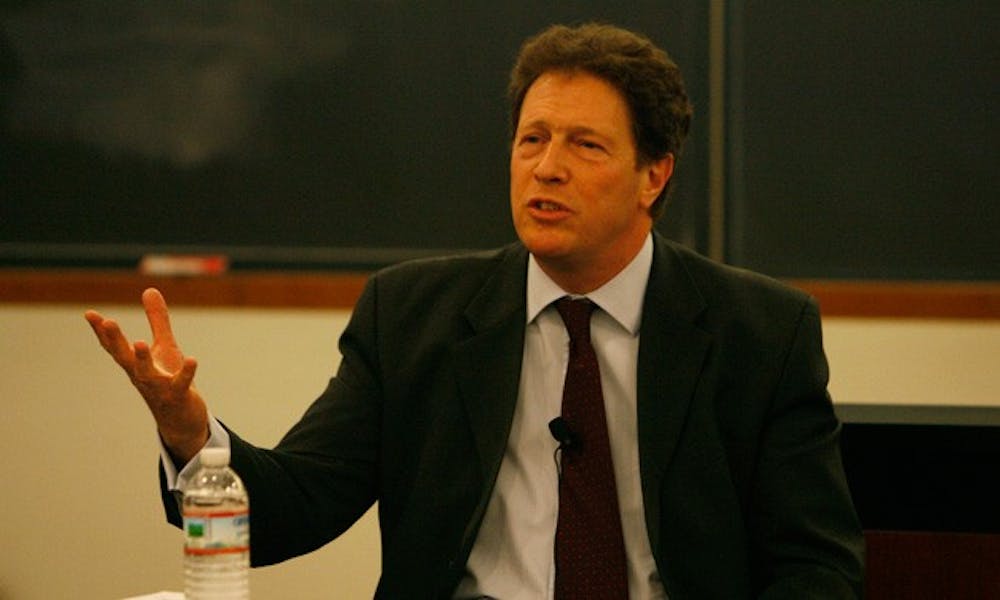British Ambassador to the United States Sir Nigel Sheinwald spoke to students and faculty on the topic of British foreign policy in the Middle East at the Sanford School of Public Policy Tuesday evening.
A career diplomat, Sheinwald joined the British Diplomatic Service in 1976. He later served as the British liaison in Moscow and to the European Union in Brussels before becoming ambassador to the U.S. in late 2007. Sheinwald was appointed foreign policy and defense adviser to former British Prime Minister Tony Blair in 2003.
“He was the Henry Kissinger to President Nixon,” said Political Science Professor Peter Feaver about Sheinwald’s close ties to Blair.
The discussion was sponsored by the Duke University Program in American Grand Strategy and the Vice Provost for International Affairs and was moderated by Feaver. The event drew scholars from universities across North Carolina.
In his discussion, Sheinwald promoted collaboration between the United Kingdom and the U.S. He called the relationship between the countries “special.”
“I’m certainly interested in promoting our business investment links with a state like North Carolina,” Sheinwald said. “That means creating jobs on both sides of the Atlantic, advancing business, science and innovation, but it also means expanding our education links.”
Sheinwald’s visit to the University coincides an important moment for British politics—national elections are just nine days away.
He also discussed the U.K.’s perspective on the Israeli-Palestinian conflict. Feaver said the conflict has also become one of President Barack Obama’s biggest priorities on the international stage.
“The lack of progress [with the Israeli-Palestinian conflict] affected the whole of American international politics, and the conflict isn’t just in the interest of the Israelis or Palestinians,” Sheinwald said. “It is vital to the American national interest.”
Sheinwald praised Obama’s decision to not support settlement expansion in the West Bank—near the Israeli-Palestinian border—and said it was a strategic move with implications that would help preserve lasting negotiations.
“It is wrong to say that if we solve this Israeli-Arab conflict there won’t be a jihad or continued violence,” he said. “It just isn’t true, but it will alleviate some of the grievances in the Muslim and Israeli worlds.”
Sheinwald also briefly touched upon Iran’s emerging role in international politics. He said the Iranian government is a real and substantial threat, primarily because of their developing nuclear program. He added that continued negotiations and sanctioning is the appropriate response to Iran’s violation of the Nuclear Non-Proliferation Treaty.
He stressed the danger of an Israeli military response and emerging proliferation in the region as a legitimate consequence of failed talks.
On the topic of the most recent Iranian presidential election, Sheinwald said the outcome of the heavily contested race was an example of the massive oppression of the Iranian people.
“They talk about slapping the United States, or slapping the West, but in reality, all they are doing is slapping their own people,” Sheinwald said.
He ended the discussion with a question and answer session with the audience before heading off to the British Embassy in Washington, D.C.
Audience members gave Sheinwald positive reviews after the event ended.
“I thought it was really fascinating to hear the British perspective on pertinent international issues that are of relevance to us all,” said senior Chelsea Goldstein, a member of The Chronicle’s Editorial Board.
Get The Chronicle straight to your inbox
Signup for our weekly newsletter. Cancel at any time.

